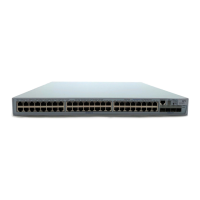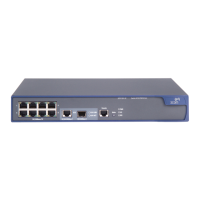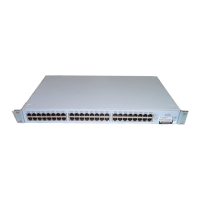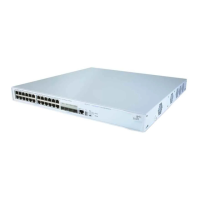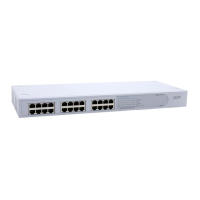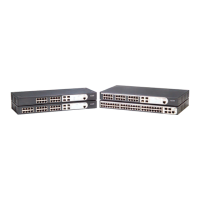30
BGP CONFIGURATION
The Border Gateway Protocol (BGP) is a dynamic inter-AS route discovery protocol.
When configuring BGP, go to these sections for information you are interested in:
■ “BGP Overview” on page 365
■ “BGP Configuration Task List” on page 380
■ “Configuring BGP Basic Functions” on page 381
■ “Controlling Route Distribution and Reception” on page 383
■ “Configuring BGP Route Attributes” on page 386
■ “Tuning and Optimizing BGP Networks” on page 388
■ “Configuring a Large Scale BGP Network” on page 390
■ “Configuring BGP GR” on page 392
■ “Displaying and Maintaining BGP” on page 394
■ “BGP Configuration Examples” on page 395
■ “Troubleshooting BGP” on page 413
n
The term “router” refers to a router in a generic sense or a Layer 3 switch running
routing protocols.
BGP Overview Three early versions of BGP are BGP-1 (RFC1105), BGP-2 (RFC1163) and BGP-3
(RFC1267). The current version in use is BGP-4 (RFC1771). BGP-4 is rapidly
becoming the defacto Internet exterior routing protocol standard and is commonly
used between ISPs.
n
BGP refers to BGP-4 in this document.
The characteristics of BGP are as follows:
■ Focusing on the control of route propagation and the selection of optimal
routes rather than the discovery and calculation of routes, which makes BGP,
an exterior routing protocol different from interior routing protocols such as
OSPF and RIP
■ Using TCP as its transport layer protocol to enhance reliability
■ Supporting CIDR
■ Substantially reducing bandwidth occupation by advertising updating routes
only and applicable to advertising a great amount of routing information on
the Internet
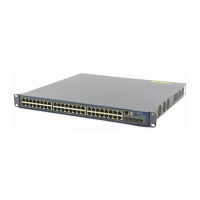
